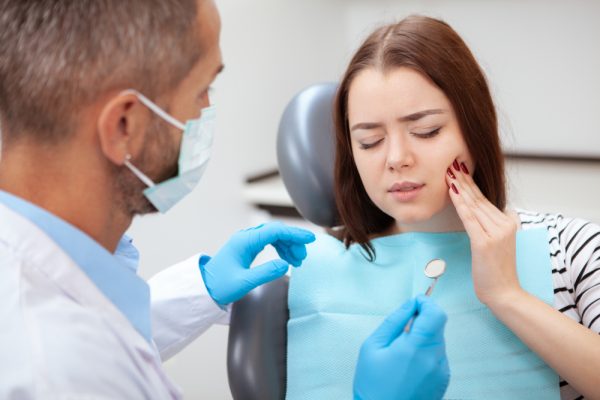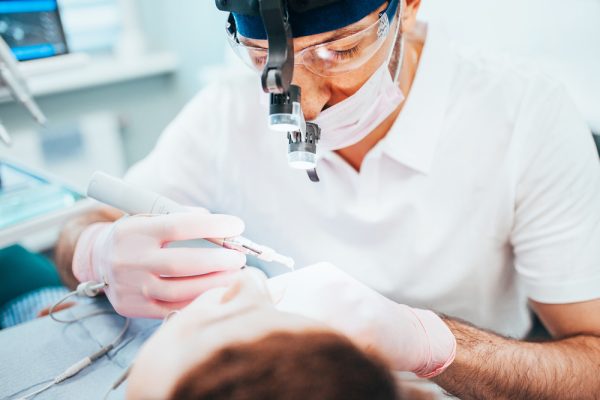Learn How to Avoid Dental Bridge Risks and Complications
Dental bridges provide functional and aesthetic benefits, restoring your smile and improving oral health. However, like any other dental procedure, some potential risks and complications can develop.
Table of Contents
Learn how to minimize the chances of complications developing from our Seattle dentist below. Our Seattle dental clinic is dedicated to providing top-quality care to the vibrant communities of Green Lake, Ballard, Fremont, Pike/Pine, Bellevue, Mercer Island, Belltown, and more.

Dental Bridge Risks
There are always slight risks when undergoing any type of procedure, and getting a dental bridge is no different. Potential risks may include:
- Allergic Reactions: Some individuals may have allergies to the materials used in dental bridges, such as metals or ceramics. Make sure to discuss any known allergies with your dentist before the procedure to ensure suitable materials are used.
- Nerve Damage: During the preparation of abutment teeth, there’s a small risk of nerve damage. Dentists take precautions to minimize this risk, but in rare cases, it can occur, resulting in temporary or permanent sensation changes.
- Bite Problems: Improperly fitted bridges can disrupt your bite alignment, leading to discomfort, difficulty chewing, or jaw joint problems. It’s essential to ensure the bridge is accurately fabricated and adjusted to maintain a proper bite.
- Risk of Decay: The margins or edges of a bridge, especially if not well-fitted, can be areas where bacteria thrive, leading to tooth decay. Regular dental check-ups and proper oral hygiene practices are essential to prevent this.
- Damage to Supporting Teeth: The teeth adjacent to the missing tooth, known as abutment teeth, need to be prepared (some of the enamel has to be removed) to hold the bridge. This can make them more prone to decay and gum disease if not properly maintained.

Possible Complications of Dental Bridges
While complications are rare, the following can occur after receiving a dental bridge:
- Tooth Sensitivity: After getting a dental bridge, some individuals may experience heightened tooth sensitivity, especially to hot or cold temperatures. This sensitivity typically diminishes over time, but if it persists or worsens, contact our Seattle dentist as soon as possible.
- Gum Irritation and Inflammation: Poor oral hygiene or an ill-fitting bridge can lead to gum irritation and inflammation. This can cause discomfort, bleeding, and even gum disease if left untreated. Regular brushing, flossing, and professional cleanings can help prevent these issues.
- Bridge Failure: While uncommon, bridge failure can occur due to various reasons. It may be caused by weak support teeth, inadequate dental hygiene, excessive forces applied to the bridge, or natural wear and tear over time. If a bridge fails, it may require repair or replacement.
- Decay and Cavities: Dental bridges can accumulate plaque and bacteria if not cleaned properly, leading to tooth decay and cavities. Regular brushing, flossing, and dental check-ups are crucial to maintain oral hygiene and prevent these issues.
How to Avoid Complications
Fortunately, there are steps you can take to ensure that complications don’t arise after receiving a dental bridge. Do the following:
- Choose a skilled dentist: Ensure you select an experienced dentist who specializes in dental bridges. A well-placed bridge is essential for long-term success.
- Maintain good oral hygiene: Maintain excellent oral hygiene by brushing at least twice a day and flossing regularly. Keeping your teeth and gums clean will prevent issues like decay and gum disease that can affect the bridge.
- Attend regular dental check-ups: Visit your dentist for regular check-ups and dental cleanings. This allows the dentist to monitor the condition of your bridge and address any emerging problems early on.
- Avoid hard or sticky foods: Be cautious with what you eat, especially shortly after getting the dental bridge. Avoid chewing on hard or sticky foods that could put excessive pressure on the bridge or cause it to dislodge.
- Use a mouthguard for sports: If you participate in sports or activities where there’s a risk of facial injury, wear a mouthguard to protect your dental bridge and natural teeth.

Frequently Asked Questions
Watch out for signs such as persistent pain around the bridge area, sensitivity to hot or cold foods, swelling or tenderness in the gums, or difficulty in chewing. If you notice any of these symptoms, it’s essential to consult your dentist for a thorough examination.
If you encounter any issues with your dental bridge, it’s crucial to schedule an appointment with your dentist promptly. They’ll assess the situation, determine the cause of the problem, and recommend the appropriate course of action, which may involve adjustments, repairs, or replacement of the bridge if necessary. Early intervention can help prevent further complications and preserve your oral health.
Yes, as the bridge ages complications may arise due to wear and tear, normal wear on the dental materials, or changes in the supporting teeth or gums. Regular dental check-ups are crucial for identifying potential issues early on and extending the lifespan of your dental bridge.
Safeguarding Your Oral Health
While dental bridges offer a reliable solution for tooth replacement, it’s crucial to be aware of the potential complications and risks involved before undergoing treatment. Contact our Seattle dentist today to learn more about dental bridges, or to schedule an appointment.
Contact our Seattle dental office today at (206) 682-3888.
